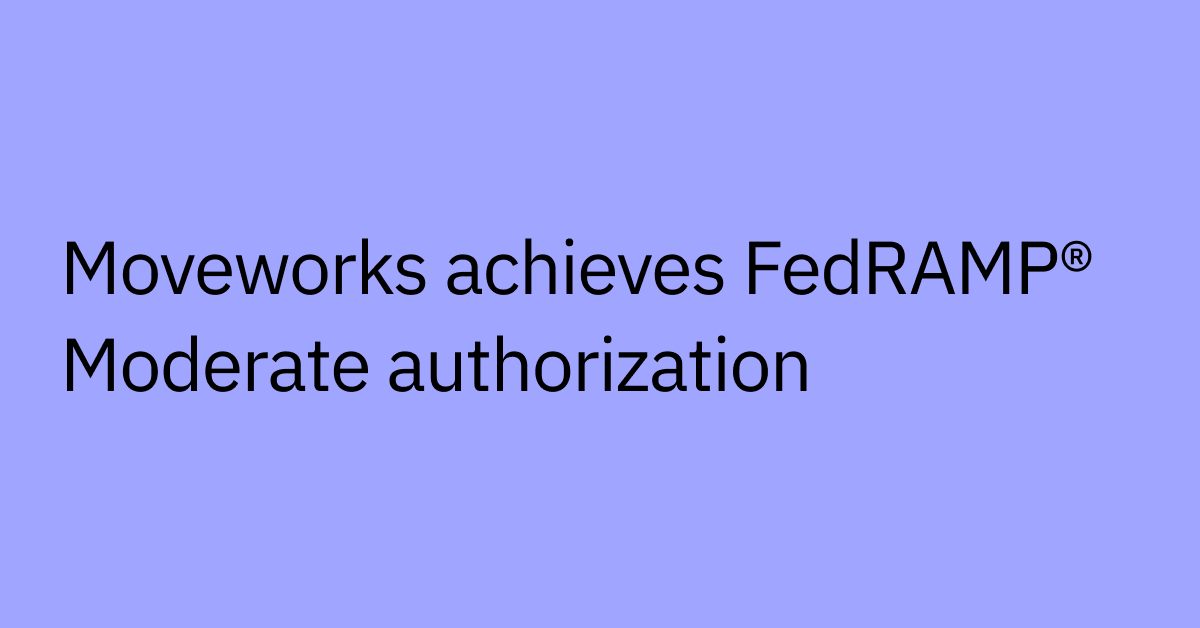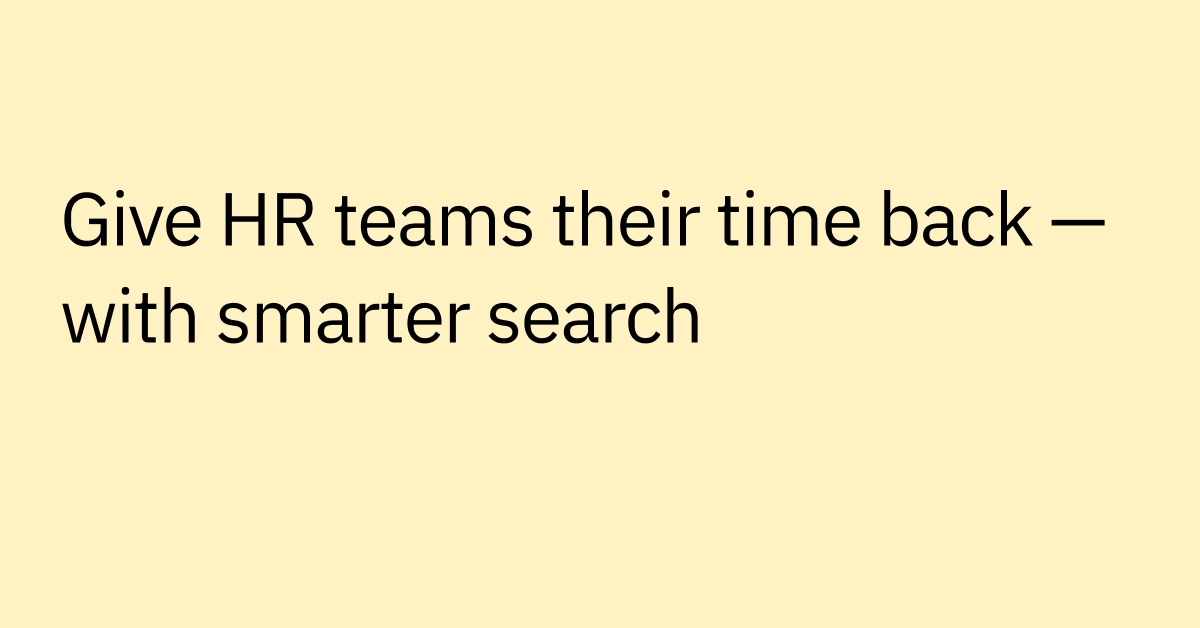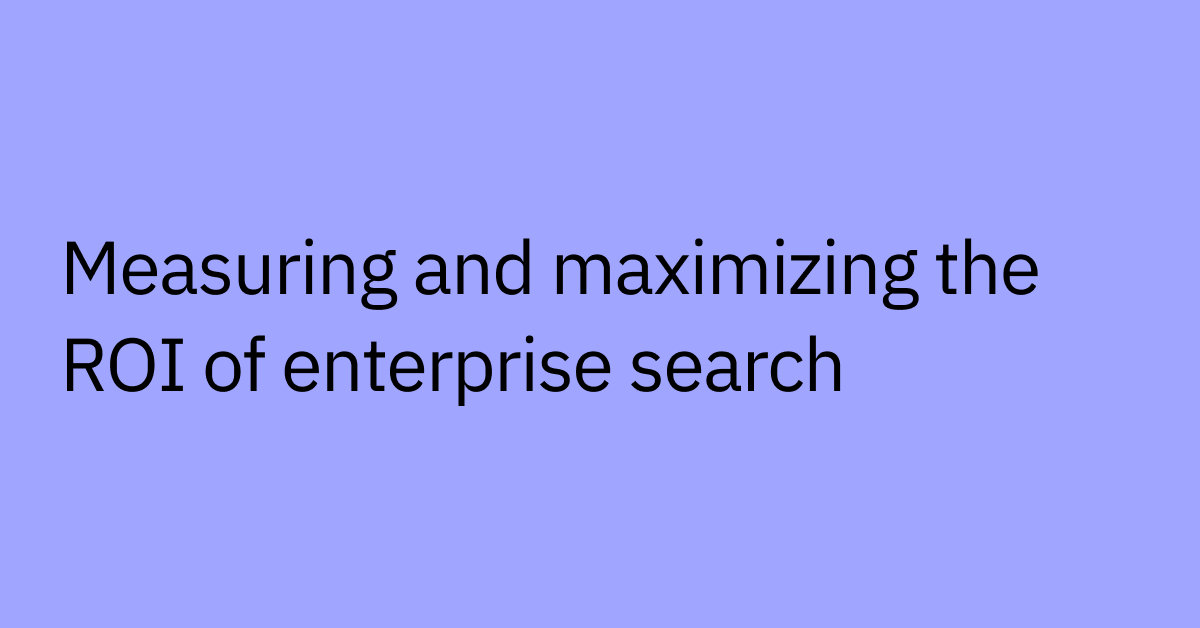Table of contents
Do you ever feel like it's a constant struggle to keep your employees supported day-to-day?
Maybe your business is in a rapid growth phase, or you just made some large changes to your internal processes. Suddenly, you're juggling new hiring workflows, a flood of HR requests, and evolving training policies — all while trying to manage your regular workloads.
At the same time, a growing team often means more support tickets. Your IT department may be stretched thin, leaving employees waiting too long for answers or assistance.
Although these are all common growing pains for most businesses, if they're not addressed quickly, they can lead to disengaged employees and a dip in productivity.
In fact, according to Gallup, global employee engagement rates fell by 21% in the last year alone, finding new ways to support your team daily is crucial.
AI chatbots could be the answer you need to transform your employees' experiences by providing instant, 24/7 support and keeping teams engaged in their work.
What is an AI chatbot?
AI-powered chatbots are software programs that simulate human-like conversations through text or voice, using natural language processing (NLP) and machine learning (ML). You can think of an AI chatbot as a virtual assistant that’s on hand to support your teams 24/7.
Employees can use chatbots to gather helpful information, automate repetitive tasks, and even streamline communication between departments.
But while AI chatbots offer many business benefits, they don't all deliver the same value. You'll find a significant gap between legacy chatbot systems and the newer, more advanced AI assistant solutions available today.
AI chatbot limitations
While older AI chatbots — often rule-based — can be convenient, they typically rely on pre-set scripts and limited training data.
So, if your employees don’t phrase questions perfectly or ask something that wasn’t covered in the training data, the chatbot might return irrelevant or nonsensical answers.
Beyond that, standard chatbots often lack contextual memory. Because they struggle to recall past dialogue, each interaction can feel disjointed, forcing your employees to repeat themselves or start over.
These drawbacks can seriously impact the employee experience and increase frustration. When employees constantly need to fact-check responses or re-explain issues, they lose valuable time and momentum.
Why advanced agentic AI assistants are a better fit for the enterprise
The next step up from AI chatbots is agentic AI assistants — a system capable of autonomous reasoning and action.
Agentic AI assistants go far beyond answering questions. They integrate seamlessly into all your business systems, using natural language processing (NLP) and machine learning algorithms to learn and adapt to your business needs over time.
This allows them to more intelligently resolve your employees' complex issues without constant prompting or frustrating restarts.
The real game-changer, however, is their ability to take independent action. This means they don't just provide information.
For example, an agentic AI assistant could automatically schedule meetings by checking multiple calendars, resolve common IT tickets like forgotten passwords, provision software, or guide a new hire through onboarding.
But these aren't just theoretical possibilities. Companies like CVS Health and West Monroe have already seen significant operational improvements thanks to agentic AI. This includes a 50% reduction in live support chats within 30 days and a 40% cost decrease, resulting in a $1.4M savings in ticket services.
Benefits of chatbots for employee engagement
From their very first day in the office, keeping your employees supported and engaged is critical to your business's success. This is where investing in a new chatbot solution can really help.
Here are just a few ways that this technology can play an active role in boosting employee engagement and improving the overall employee experience.
1. Answer FAQs and employee questions
Are your employees frequently asking about company policies, benefits details, or their remaining time off? A chatbot can readily answer these common employee queries, no matter where or when your team members are working.
But while a standard chatbot might just point to basic knowledge base articles or frequently asked questions (FAQs) pages, an agentic AI assistant can go much further.
Instead of just listing generic resources, these AI assistants understand the context of each query. This enables them to deliver highly relevant answers, personalized to an employee's specific role, location, and even their native language.
Companies like Palo Alto Networks have used AI assistants to save over 350,000 hours of productivity for their employees, helping them resolve issues faster and more efficiently.
2. Improve employee onboarding and offboarding
Chatbots can help create smoother experiences for your employees, simplifying crucial processes like onboarding and offboarding.
For example, they can guide new employees through benefits enrollment, explain company policies, or help with equipment setup. During training, employees can also turn to them for quick answers to questions or to locate internal resources.
Agentic AI assistants take this functionality even further by automating more complex tasks during staff transitions. Instead of having your IT teams manually provision or deprovision system access permissions as employees come and go, your AI assistant can handle these routine processes on its own.
Medallia, a market-leading customer experience company, took this approach to improve their onboarding processes. By incorporating an agentic AI assistant, they saw a 34% decrease in ticket resolution times, with 95% of their employees regularly accessing the tool.
3. Reset passwords and multi-factor authentication
Getting locked out of applications is a surefire way to derail employees. It's a major time-waster, and waiting for IT to reset a password can cause your team to lose momentum and focus.
A basic chatbot might offer helpful troubleshooting guides to get employees back on track quickly. But an agentic AI assistant can go a step further and automate the entire resolution process.
Whether it's a forgotten password or an MFA hiccup, an agentic AI assistant can directly resolve these common issues, easing the administrative load on your IT department and keeping productivity high.
A leading web design company experienced their own success when transitioning from an IT support model to a more powerful self-service solution. When integrating their AI-powered support solution, internally known as "Flowbot," the company was able to reduce routine IT requests by 50% using a fully automated AI assistant.
4. Deflect IT or HR support requests
Waiting a long time for IT or HR departments to respond can be incredibly frustrating for employees. Faster responses mean less support backlog and more productivity for your teams.
Chatbots can be quite helpful in these situations, especially when answering simple questions or clarifying policies. But an agentic AI assistant can help increase your support ticket deflection rates even more.
For example, if an employee needs a new software license or wants to access their payroll information, an agentic AI assistant can often process the request directly. This means fewer submitted tickets and more time for your IT and HR teams to focus on strategic initiatives and higher-value tasks.
In fact, Databricks used an advanced AI assistant to achieve a 73% ticket deflection rate across their entire organization.
5. Automate employee communications and updates
Keeping everyone in the loop doesn't mean you have to drown them in emails. Chatbots offer a quick way to share important news, like updates to HR processes or policy changes, using automatic notifications.
But while traditional chatbots can automate general company-wide updates, an agentic AI assistant adds more personalization to the mix.
By connecting to your enterprise data, these assistants can determine if a communication is relevant to an employee based on their role and only notify them when necessary.
Based on the context of the update, an agentic AI assistant can even create follow-up actions for the employee or automatically schedule relevant meetings with the right team members.
Effective communication is critical when it's used to serve the healthcare needs of patients. This is why Vituity, one of the largest acute care providers in the U.S., chose to invest in a more proactive solution for supporting its network of nearly 5,000 physicians around the country.
By providing faster IT support to front-line physicians, Vituity's AI assistant, "Otto," helped the company reduce its average time to resolution to one day, while freeing up 40% of its L1 help desk agents to focus on other strategic initiatives.
6. Send surveys and collect employee feedback
Getting regular feedback from your team is key to improving their support experiences. But reminding employees to fill out surveys and then analyzing their responses can be a time-consuming process that drains resources.
Chatbots can remind employees to complete survey forms and offer an easier way to collect feedback. Agentic AI assistants, however, make this process far more valuable by helping you extract useful insights from the responses — automatically.
AI assistants can sift through all the comments left to identify different trends that point to areas for improvement. They can also use sentiment analysis to detect employee frustration and even help formulate meaningful, real-time responses to address concerns directly.
Experiencing growing pains with their own operations, Mercari, a rapidly scaling online marketplace, needed a way to improve their support experiences to keep pace with their increased customer base.
Implementing a conversational AI assistant supported the company’s ability to reduce its ticket volumes by 74%, saving over 8,000 hours of manual IT effort per month.
7. 24/7 support in your global employees’ languages
If you have a hybrid or remote workforce, then you already know how difficult navigating multiple languages can be. Chatbots can be a viable solution for translating important business communications across different regions and language groups.
While many standard chatbots have limited language support, an agentic AI solution can greatly expand on this capability. For example, advanced platforms like Moveworks offer automated support in over 100 languages.
This communication flexibility is crucial for ensuring that every employee, no matter their native language, feels included, informed, and like an equal part of your business.
With over 26,000 employees, Wellstar, one of the largest healthcare systems in Georgia, understands the importance of adding personalized support to a diverse team more than most.
After integrating an AI assistant known as "WALi," Wellstar resolved over 10,000 IT issues instantly and enabled more than 100,000 conversations in multiple supported languages.
8. Recommend learning and development resources
AI-powered HR chatbots can make it easier for your teams to find helpful learning resources they can use to develop their skills, such as training guides or videos stored in your learning management system (LMS).
But what if your employees need more direction or aren’t sure which programs will be most useful for their roles? This is where agentic AI can help.
Agentic AI assistants can create custom learning plans for each employee, based on their current role, performance management goals, and existing skills. They can even automatically enroll employees in relevant courses and send smart reminders about upcoming classes so nothing gets missed.
When looking for ways to provide more helpful resources to their employees in real time, Hearst, a media and information company, implemented an AI assistant called "Herbie," into their ITSM.
This enabled intelligent AI-powered triage of all their support tickets, while giving employees quick access to critical knowledge base sources and automatically triaging and resolving 57% of support issues.
9. Coordinate meetings based on scheduling bandwidth
It can be frustrating when your teams need to schedule meetings but constantly battle with calendar conflicts. Chatbots help to minimize this situation by checking attendees' availability, finding open slots, and sending out invites directly through chat interfaces.
When using an AI assistant, however, your employees don’t even need to look for a free time slot.
Agentic AI automatically analyzes an employee's schedule against optimal meeting times, looking at both their availability and the meeting's purpose. It can then proactively suggest ideal slots, book a suitable meeting room, and send invitations on the employee's behalf.
Nutanix, an industry leader in cloud software, saw the need to free up the time its workforce spent on various support-related activities.
As a result of building an intelligent AI chatbot across its connective cloud services, Nutanix was able to reduce ticket resolution times to seven seconds and auto-resolve over 30,000 IT issues.
Upgrade from chatbots to AI that actually solves problems
Siloed knowledge base resources, time-consuming HR functions, and backlogged support teams can all impact employee satisfaction — leaving them feeling unproductive and disengaged.
While incorporating chatbots across your business is a great starting point to minimize these issues, you’ll want a long-term solution that can significantly remove or eliminate them over time.
Moveworks AI Assistant is a powerful self-service tool with advanced search capabilities and generative AI features.
Using an intelligent Reasoning Engine that's designed to reason, plan, and execute employee requests 24/7, teams are able to receive accurate responses grounded in company knowledge — pulled from across all their business applications — whenever they need them.
With access to tools like Moveworks Agent Studio, which allows your team to develop intelligent AI agents using an intuitive interface, your organization can quickly build and deploy secure, reliable automations across every department like IT, HR, and Operations.
Whether you're focused on streamlining onboarding, incident management, data access, or IT support, Moveworks gives you the tools and system necessary to get enterprise-grade automation up and running.
Ready to move beyond basic chatbots? Explore Moveworks AI Assistant can drive real productivity gains across your workforce.



